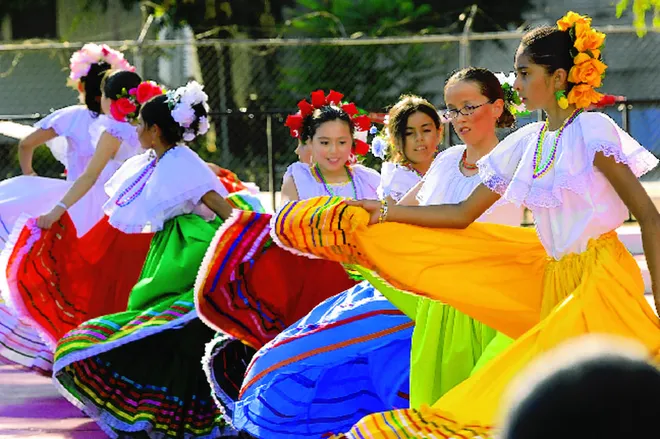Chicago is facing a cultural and political storm after city officials announced the cancellation of major Mexican Independence Day celebrations due to security concerns tied to President Donald Trump’s National Guard deployment plans. The move, which was intended to support federal immigration enforcement, has ignited debate among Latino communities, civil rights leaders, and political observers about the balance between national security and cultural expression.
A Tradition Interrupted
Every September, Chicago becomes a vibrant hub of parades, street festivals, and cultural performances to honor Mexican Independence Day. The city’s Latino population—particularly in neighborhoods like Pilsen and Little Village—has long treated the festivities as more than just celebrations, but as symbols of identity, resilience, and pride.
This year, however, the celebrations will be silent. Organizers confirmed that parades and community gatherings have been called off following federal directives and concerns that immigration enforcement actions could escalate if troops are stationed in the city.
Community leaders say the decision was not taken lightly. “These events represent our roots, our history, and our contributions to this city,” said Juan Herrera, a cultural organizer in Pilsen. “To cancel them under the shadow of militarization feels like erasing our voices.”
Trump’s Deployment Order and Immigration Tensions
The Trump administration has defended the deployment of National Guard troops as a necessary measure to support local law enforcement and federal immigration agencies. Officials argue that the action is part of a broader push to strengthen border security and enforce immigration laws within U.S. cities.
White House spokespersons have stated that the deployment is not targeted at any specific ethnic group. Instead, they frame it as a step toward restoring law and order in areas where “immigration-related challenges” intersect with local crime.
However, critics say the optics tell another story. With Latino communities disproportionately affected by immigration raids and detentions, the timing of the deployment—just days before one of the most visible cultural holidays for Mexican-Americans—has been described by some as deliberate and intimidating.
For context, the Chicago Tribune has previously reported on heightened tensions between city officials and federal authorities over immigration crackdowns, with local leaders insisting that Chicago remain a “sanctuary city.”
Community Reaction: Fear and Frustration
The cancellation has struck a nerve among Chicago’s nearly 800,000 residents of Mexican descent. Many say they now feel forced to choose between celebrating their heritage and risking potential encounters with immigration enforcement.
“It feels like our culture is being policed,” said Maria Torres, a teacher in Little Village. “We are being told that our celebrations are unsafe—not because of crime, but because of politics.”
Immigrant rights organizations have also spoken out, warning that militarizing public spaces creates an environment of fear. Advocacy groups argue that while the government has the right to enforce immigration laws, it should not come at the cost of silencing cultural traditions.
Political Fallout in a Key Election Year
The controversy is unfolding during a pivotal election cycle. Trump’s immigration policies have always been at the center of national debate, but the decision to deploy troops in a city with such a large Latino population adds a new layer of political risk.
Democratic lawmakers from Illinois have condemned the move, calling it an unnecessary provocation. Republican allies, however, argue that the administration is fulfilling its promise to restore law and order.
Analysts point out that this latest clash could have long-term political consequences, particularly as Latino voters continue to play an increasingly decisive role in U.S. elections. For comparison, Pew Research Center notes that Latino voter turnout surged in recent cycles, reshaping electoral maps in several states.
What’s at Stake for Chicago’s Latino Community
The decision to cancel Mexican Independence Day celebrations goes beyond one weekend’s festivities. It underscores broader questions about how immigrant communities navigate cultural expression under political pressure.
For many, the issue is not just about safety, but about dignity. The celebrations represent cultural continuity, passed from generation to generation. Canceling them, some argue, sets a dangerous precedent in which cultural traditions can be curtailed by political decisions.
As civil rights advocates continue to rally against the deployment, legal scholars suggest that the situation could spark new legal battles over the limits of federal power in cities that have declared themselves sanctuaries.
Looking Ahead
While some community leaders hope the events can be rescheduled or adapted into smaller private gatherings, others say the damage has already been done. Trust has been eroded, and the community is left grappling with the feeling that their heritage has become collateral in a political fight.
For now, the streets of Pilsen and Little Village remain quiet. Instead of parades, residents are holding town hall meetings, organizing legal aid workshops, and searching for ways to celebrate without drawing unwanted attention.
The broader question remains: Can cultural identity survive political battles without being reshaped by them?




